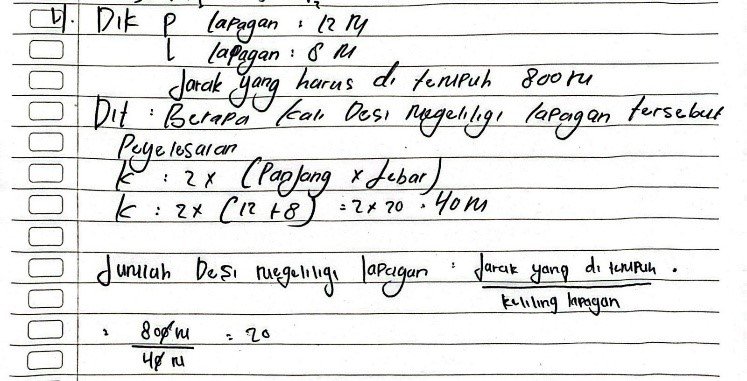Analyzing Students’ Numeracy Literacy in Relation to Mathematics Anxiety
https://doi.org/10.51574/kognitif.v5i3.3656
Keywords:
Numeracy Literacy, Mathematics Anxiety, Qualitative Approach, Geometry, Students’ AchievementAbstract
The growing global emphasis on numeracy as a core competency for 21st-century learners underscores the urgency of addressing mathematics anxiety, which may act as a critical barrier to students’ achievement. This study aims to analyze seventh-grade students’ numeracy literacy in relation to mathematics anxiety and to examine the association between three indicators of numeracy literacy and three levels of mathematics anxiety (low, moderate, and high). A qualitative approach was employed with six students purposively selected based on mathematics anxiety questionnaire results, consisting of two students from each anxiety level. The instruments included (1) a numeracy literacy test on two-dimensional geometry, (2) a mathematics anxiety questionnaire, and (3) a semi-structured interview protocol. Data were analyzed using Miles and Huberman’s model with triangulation to ensure validity and trustworthiness. The findings indicate that students with low mathematics anxiety successfully demonstrated all numeracy literacy indicators. In the moderate-anxiety group, one student achieved all indicators while another met only one. Students with high anxiety failed to demonstrate any indicator, suggesting that heightened anxiety hindered their mathematical performance. Theoretically, this study contributes to the growing body of literature on the interplay between affective factors and numeracy literacy by providing empirical evidence from the context of junior secondary education. Practically, the findings offer insights for teachers and policymakers to design pedagogical interventions that reduce mathematics anxiety and enhance students’ capacity for logical reasoning and problem-solving.
Downloads
References
Anggarawati, G., Prasetyowati, D., & Zuhri, M. S. (2023). Analisis Kemampuan Pemecahan Masalah Matematika Ditinjau Dari Kecemasan Matematika Siswa. Didaktik : Jurnal Ilmiah PGSD STKIP Subang, 09(05), 2541–2553. https://journal.stkipsubang.ac.id/index.php/didaktik/article/download/2346/1838
Apipatunnisa, I., Hamdu, G., & Giyartini, R. (2022). Eksplorasi Kemampuan Literas Dan Numerasi Siswa Sekolah Dasar Dengan Pemodelan RASCH. Journal of Elementary Education, 05(18), 3.
Ate, D., & Lede, Y. K. (2022). Analisis Kemampuan Siswa Kelas VIII dalam Menyelesaikan Soal Literasi Numerasi (Analysis of Class VIII Students’ Ability in Solving Numeracy Literacy Questions). Jurnal Cendekia : Jurnal Pendidikan Matematika, 6(1), 427–483.
Gulo, R. E., Telaumbanua, Y. N., Mendrofa, R. N., & Mendrofa, N. K. (2025). Analisis Kemampuan Literasi Numerasi Siswa Dalam Menyelesaikan Soal Cerita Persamaan Linear Satu Variabel Ditinjau Dari Metakognitif. Jurnal Edukasi Matematika Dan Sains, 14(1), 1–22.
Handayani, S. D. (2019). Pengaruh Kecemasan Matematika terhadap Pemahaman Konsep Matematika. SAP (Susunan Artikel Pendidikan), 4(1). https://doi.org/10.30998/sap.v4i1.3708
Harefa, A. D., Lase, S., & Zega, Y. (2023). Hubungan Kecemasan Matematika Dan Kemampuan Literasi Matematika Terhadap Hasil Belajar Peserta Didik. Educativo: Jurnal Pendidikan, 2(1), 144–151. https://doi.org/10.56248/educativo.v2i1.96
Hein, K., & Prediger, S. (2024). Scaffolds for seeing, using, and articulating logical structures in proofs: Design research study with high school students. Journal of Mathematical Behavior, 74(April), 101123. https://doi.org/10.1016/j.jmathb.2023.101123
Heyd-Metzuyanim, E., Sharon, A. J., & Baram-Tsabari, A. (2021). Mathematical media literacy in the COVID-19 pandemic and its relation to school mathematics education. Educational Studies in Mathematics, 108(1–2). https://doi.org/10.1007/s10649-021-10075-8
Istihapsari, V., Sukestiyarno, Y. L., Suyitno, H., & Rochmad, R. . . (2022). Kemampuan Literasi Matematika Peserta Didik SMP Berdasarkan Kecemasan Matematika. Prosiding Seminar …, 1127–1132. https://proceeding.unnes.ac.id/index.php/snpasca/article/view/1619
Juliyanti, A., & Pujiastuti, H. (2020). Pengaruh Kecemasan Matematis Dan Konsep Diri Terhadap Hasil Belajar Matematika Siswa. Prima: Jurnal Pendidikan Matematika, 4(2), 75. https://doi.org/10.31000/prima.v4i2.2591
Kosko, K. W. (2020). The multiplicative meaning conveyed by visual representations. Journal of Mathematical Behavior, 60(January), 100800. https://doi.org/10.1016/j.jmathb.2020.100800
Lusiana, Sukayasa, Pathuddin, & Mubarik. (2025). Analisis kemampuan literasi numerasi siswa ditinjau dari kecemasan matematika. 8.
Mulyani, S., Nurcahyono, N. A., & Lukman, H. S. (2025). Jurnal PEKA ( Pendidikan Matematika ). Matematika, 08(02), 90–104. https://doi.org/10.37150/jp.v8i2.3137.Copyright
Mutik, R. I., Zaenuri, Walid, Sugiman, & Agoetanto, A. (2025). Analisis kemampuan literasi numerasi ditinjau dari kecemasan matematika pada pembelajaran elpsa kelas xi sma. 8, 318–325.
Risqullah, F., Fatmawati, D. P., HIdayat, M. R., Khaerullah, M. I., & Hidayah, N. (2022). Analisis kemampuan literasi numerasi siswa dalam menyelesaikan soal hots materi limit dan turunan fungsi. Prosiding Seminar Nasional Matematika Dan …, November, 100–109. https://prosiding.biounwir.ac.id/article/view/225%0Ahttps://prosiding.biounwir.ac.id/article/download/225/169
Salsabilah, A. P., & Kurniasih, M. D. (2022). Analisis Kemampuan Literasi Numerasi Ditinjau dari Efikasi Diri pada Peserta Didik SMP. Edumatica : Jurnal Pendidikan Matematika, 12(02), 138–149. https://doi.org/10.22437/edumatica.v12i02.18429
Salvia, N. Z., Sabrina, F. P., & Maula, I. (2022). Analisis Kemampuan Literasi Numerasi Peserta Didik Ditinjau Dari Kecemasan Matematika. ProSANDIKA UNIKAL (Prosiding Seminar Nasional Pendidikan Matematika Universitas Pekalongan), 3(2019), 352–360. https://www.proceeding.unikal.ac.id/index.php/sandika/article/view/890
Setiani, A. (2016). Mengurangi Kecemasan Matematis Dan Meningkatkan Kemampuan Pemecahan Masalah Matematis Siswa Mts Dengan Pendekatan PBL. Pasundan Journal of Mathematics Education : Jurnal Pendidikan Matematika, Vol 6 No. 2. https://doi.org/10.23969/pjme.v6i2.2648
Setiawan, M., Pujiastuti, E., & Susilo, B. E. (2021). Tinjauan Pustaka Systematik: Pengaruh Kecemasan Matematika Terhadap Kemampuan Pemecahan Masalah Siswa. QALAMUNA: Jurnal Pendidikan, Sosial, Dan Agama, 13(2), 239–256. https://doi.org/10.37680/qalamuna.v13i2.870
Tall, D., de Lima, R. N., & Healy, L. (2014). Evolving a three-world framework for solving algebraic equations in the light of what a student has met before. Journal of Mathematical Behavior, 34, 1–13. https://doi.org/10.1016/j.jmathb.2013.12.003
Tobu, P. C. J., & Hadisusanto, J. (2022). Analisis Kecemasan Matematis Siswa SD dengan Menggunakan Neurosains Kognitif. In Prosiding Seminar Nasional Matematika Dan Pendidikan Matematika, 7(November), 336–343.
Vidic, T., Irena, K., & Duranovic, M. (2022). The role of teachers ’ support and enthusiasm in predicting mathematics anxiety and confidence among students t. Journal of Eduaction Elementary, 15(1), 51–69.
Wardani, N. (2022). The Effect of Mathematics Anxiety on Students ’ Learning Outcomes in Class X High School. Nucleus, 3(2), 155–161.
Widiastuti, E. R., & Kurniasih, M. D. (2021). Pengaruh Problem Based Learning Berbantuan software Cabri 3D V2 Terhadap Kemampuan Literasi Numerasi Siswa. Jurnal Cendekia : Jurnal Pendidikan Matematika, 5(3), 2857–2868. https://doi.org/10.31004/cendekia.v5i3.829

Downloads
Published
How to Cite
Issue
Section
License
Copyright (c) 2025 Asmaul Husna, Husnul Khatimah

This work is licensed under a Creative Commons Attribution-ShareAlike 4.0 International License.
Education and Talent Development Center of Indonesia (ETDC Indonesia)
e-mail: kognitif@gmail.com, website : https://etdc-indonesia.com

Kognitif: Jurnal Riset HOTS Pendidikan Matematika dengan Situs: https://etdci.org/journal/kognitif berlisensi Creative Commons Attribution-ShareAlike 4.0 International License









.png)

